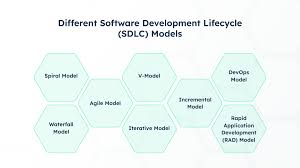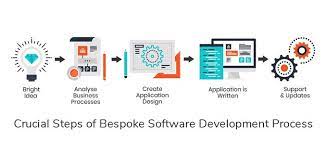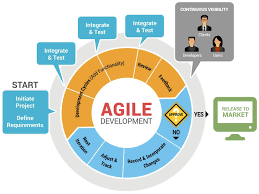The Benefits of Custom Software Development in Agile
Custom software development in Agile methodology has become increasingly popular in the tech industry due to its flexibility and efficiency. Agile is a project management approach that emphasizes collaboration, adaptability, and iterative development. When it comes to custom software development, Agile offers several key benefits:
Rapid Delivery
One of the main advantages of Agile custom software development is its ability to deliver working software in short iterations, known as sprints. This allows for quick feedback from stakeholders and end-users, leading to faster product delivery and reduced time-to-market.
Flexibility
Agile methodology allows for changes to be made throughout the development process. This means that requirements can be adjusted based on feedback and evolving business needs, resulting in a more flexible and responsive end product.
Improved Quality
By focusing on continuous testing and integration, Agile custom software development helps ensure higher quality code and fewer defects. The iterative nature of Agile also allows for early detection and resolution of issues, leading to a more robust final product.
Enhanced Collaboration
Agile promotes close collaboration between cross-functional teams, including developers, designers, testers, and business stakeholders. This collaborative approach fosters transparency, communication, and shared responsibility, resulting in a stronger sense of teamwork and alignment towards project goals.
Customer Satisfaction
Ultimately, the goal of custom software development in Agile is to deliver value to the customer. By involving customers throughout the development process and prioritizing their feedback, Agile helps ensure that the end product meets their needs and expectations.
In conclusion, custom software development in Agile methodology offers numerous benefits that can lead to faster delivery times, increased flexibility, improved quality, enhanced collaboration, and ultimately greater customer satisfaction. As technology continues to evolve at a rapid pace, adopting an Agile approach can help organizations stay competitive in today’s dynamic market.
Understanding Custom Software Development in Agile: Key FAQs Answered
- What is an example of custom software?
- What are the phases of custom software development?
- What is custom software development?
- What is a custom software development?
- What is custom agile?
What is an example of custom software?
An example of custom software can be a customer relationship management (CRM) system tailored to meet the specific needs and requirements of a particular business. This custom software solution can be developed using Agile methodology to ensure that it aligns perfectly with the company’s unique processes and workflows. By customizing features such as lead management, sales tracking, and customer support, the CRM system can effectively streamline operations and enhance overall efficiency for the business.
What are the phases of custom software development?
In custom software development within the Agile methodology, the process typically involves several key phases. These phases often include requirements gathering and analysis, design, development, testing, deployment, and maintenance. Each phase is iterative and collaborative, allowing for continuous feedback and adjustments to ensure that the final product meets the client’s needs effectively. By breaking down the development process into these distinct phases, Agile custom software development teams can deliver high-quality solutions in a more efficient and adaptable manner.
What is custom software development?
Custom software development refers to the process of creating tailor-made software solutions that are specifically designed to meet the unique needs and requirements of a particular business or organization. Unlike off-the-shelf software, custom software is developed from scratch and is fully customizable to address specific challenges, enhance operational efficiency, and achieve strategic objectives. In the context of Agile methodology, custom software development emphasizes collaboration, adaptability, and iterative development to ensure that the final product aligns closely with the client’s vision and delivers maximum value.
What is a custom software development?
Custom software development refers to the process of creating tailored software solutions that are specifically designed to meet the unique needs and requirements of a particular business or organization. Unlike off-the-shelf software, custom software is built from scratch and can be fully customized to address specific challenges, streamline processes, and achieve strategic objectives. In the context of Agile methodology, custom software development involves an iterative and collaborative approach that prioritizes flexibility, rapid delivery, and continuous improvement based on feedback from stakeholders. By leveraging Agile principles, custom software development projects can adapt to changing requirements, deliver high-quality results, and ultimately provide a competitive advantage in today’s dynamic digital landscape.
What is custom agile?
Custom Agile refers to the practice of tailoring Agile methodologies to suit the specific needs and requirements of a custom software development project. In essence, it involves adapting Agile principles and practices to fit the unique circumstances of a particular project, such as its scope, timeline, team composition, and client preferences. Custom Agile allows for greater flexibility and customization in how Agile is implemented, enabling teams to optimize their development process for maximum efficiency and effectiveness. By customizing Agile practices to align with the specific goals and constraints of a project, teams can better address challenges and deliver high-quality software solutions that meet the client’s expectations.




